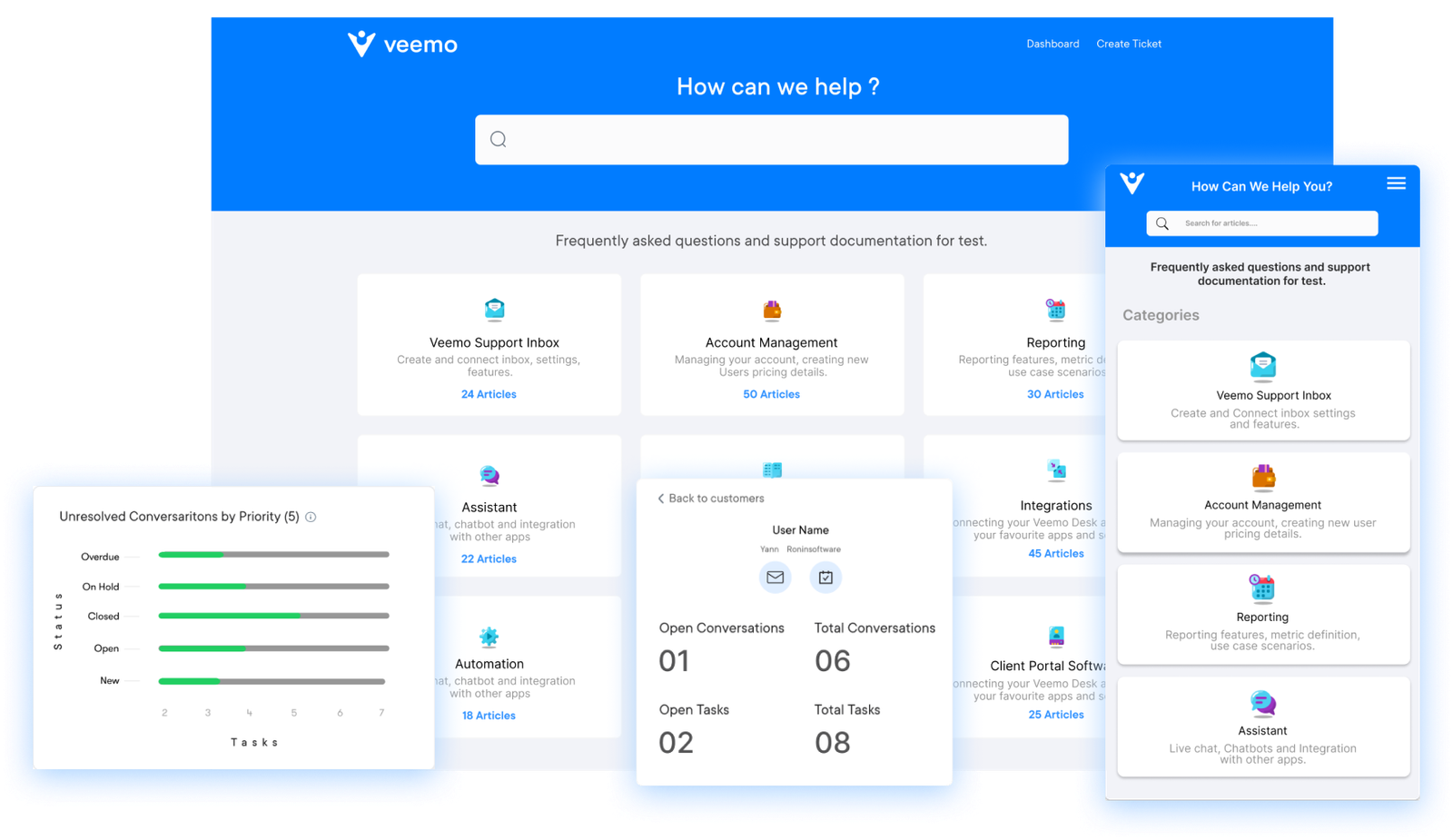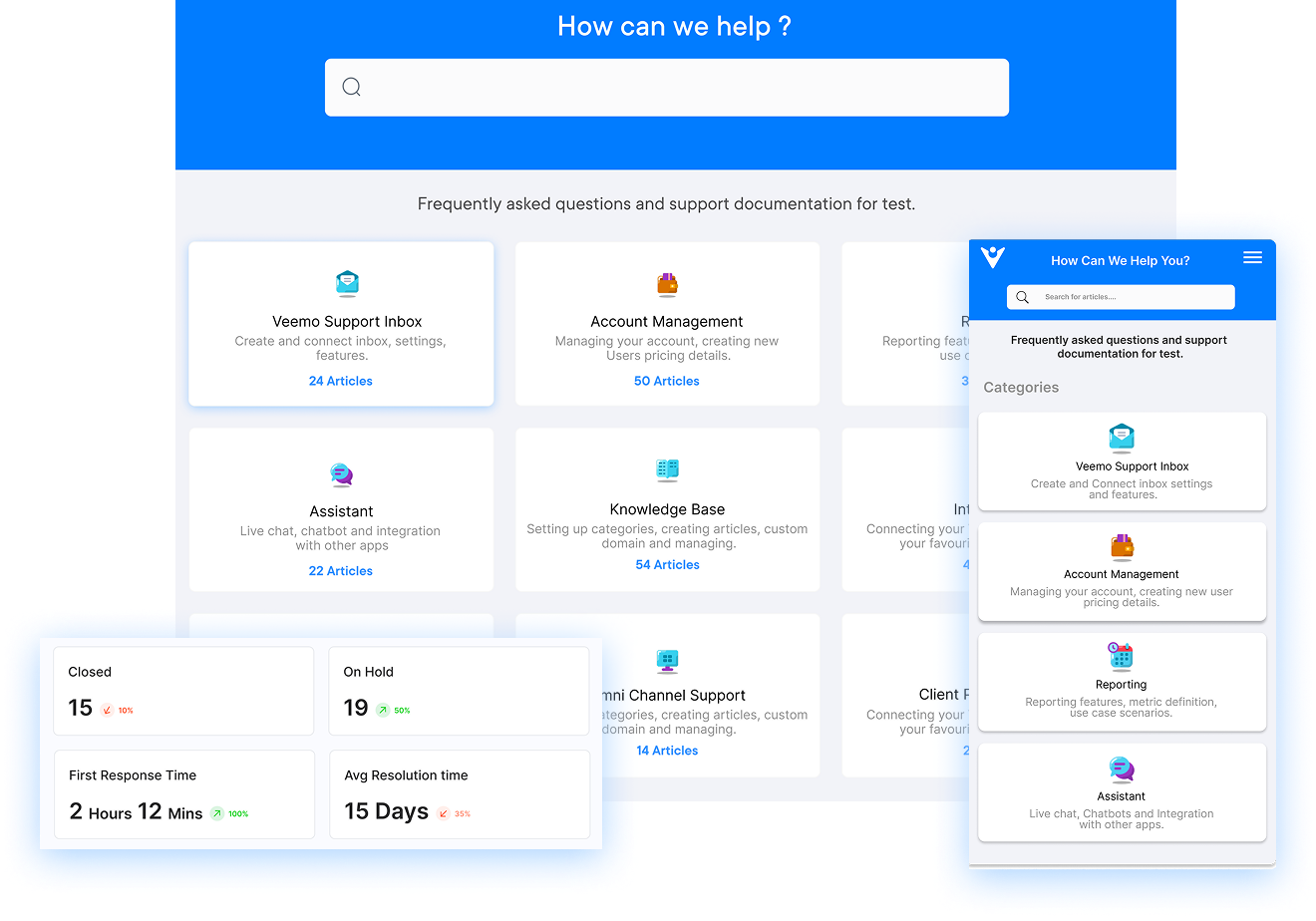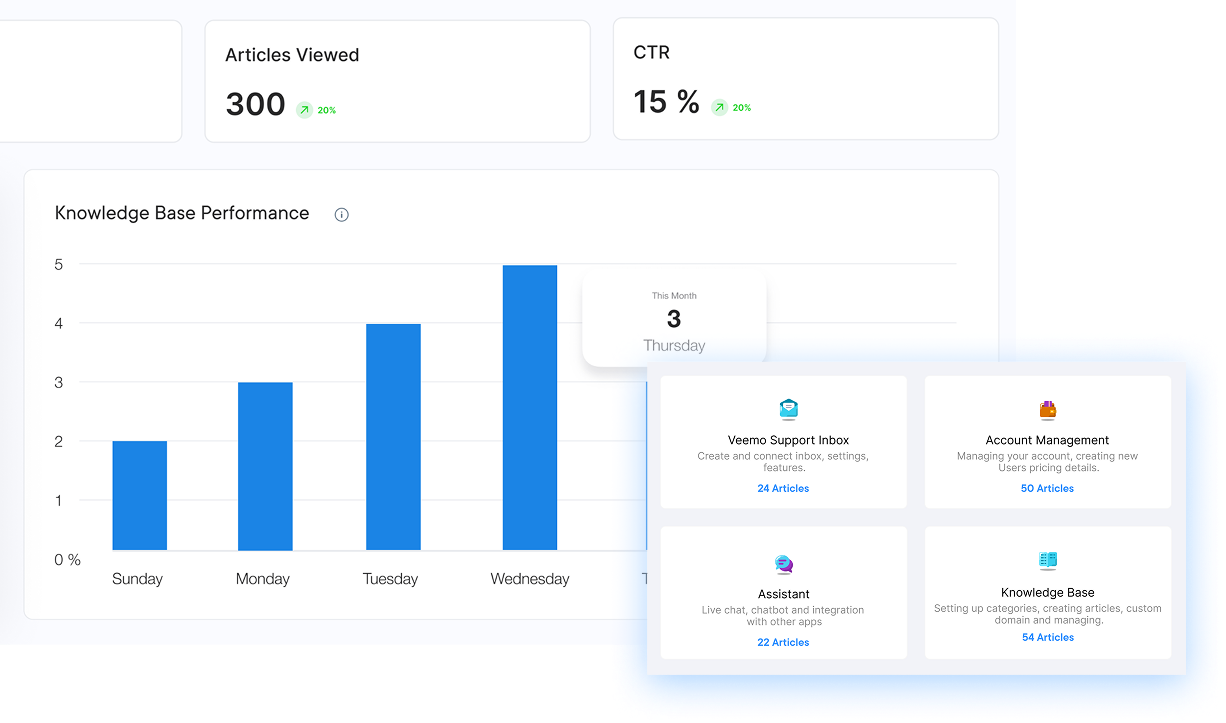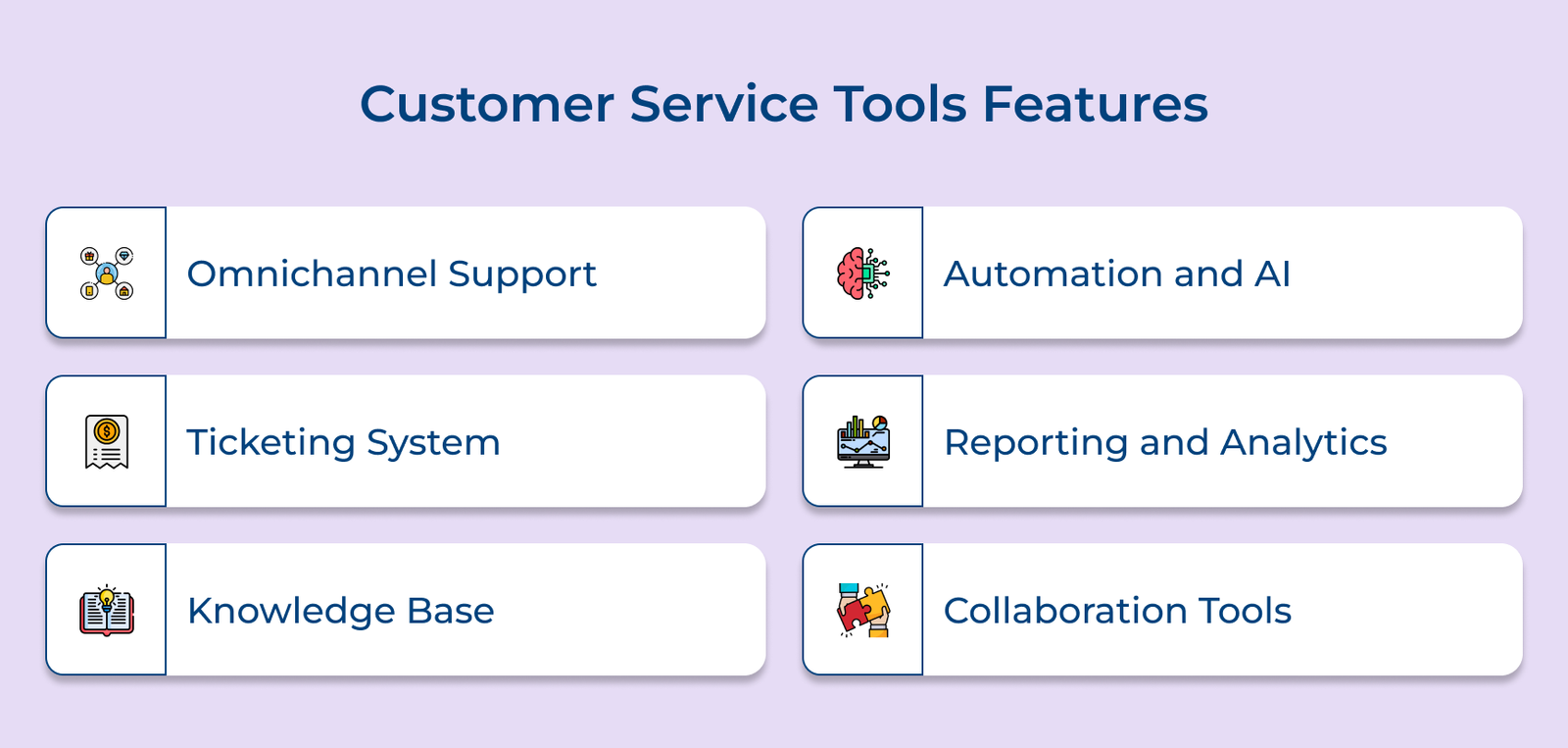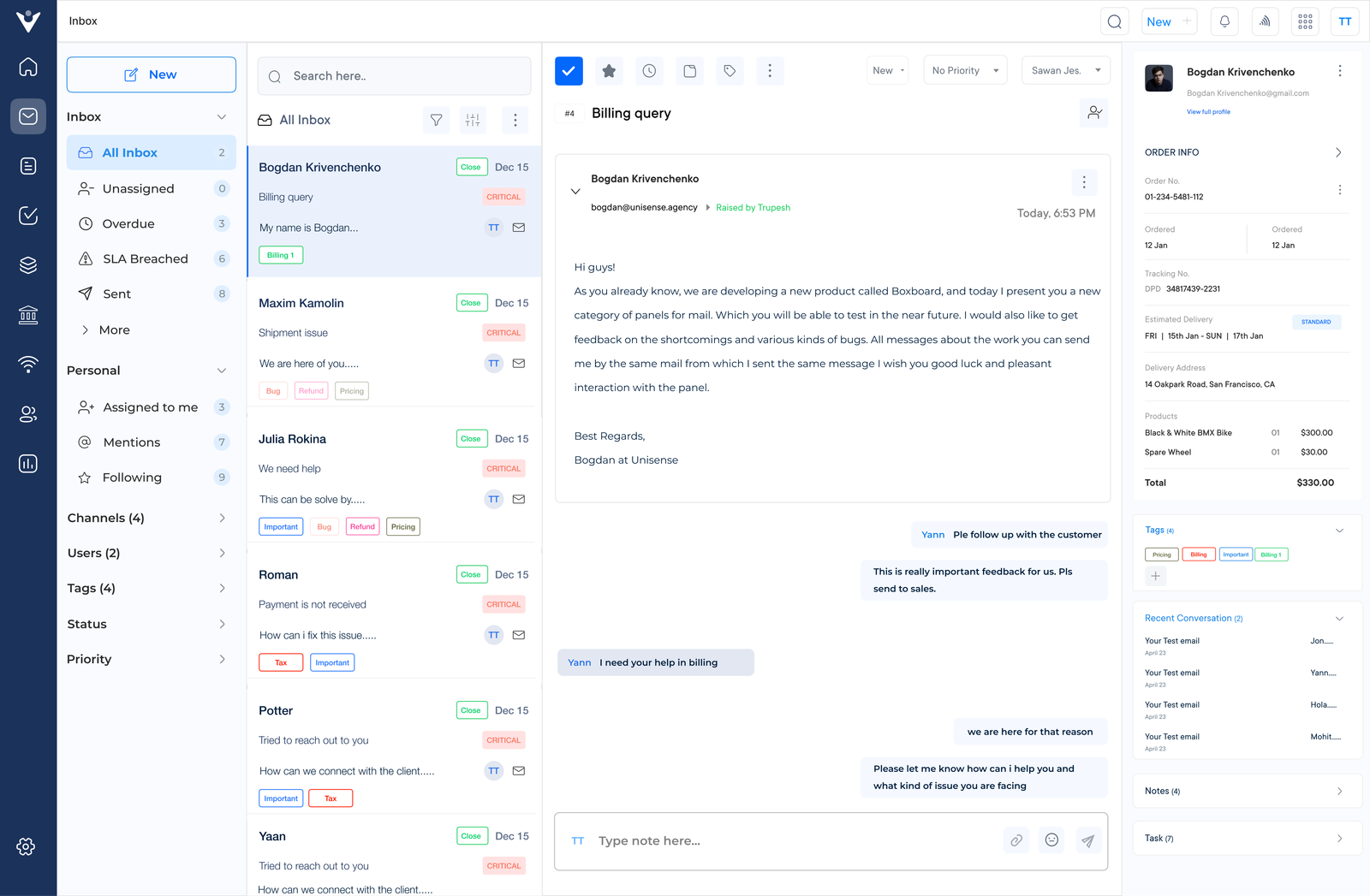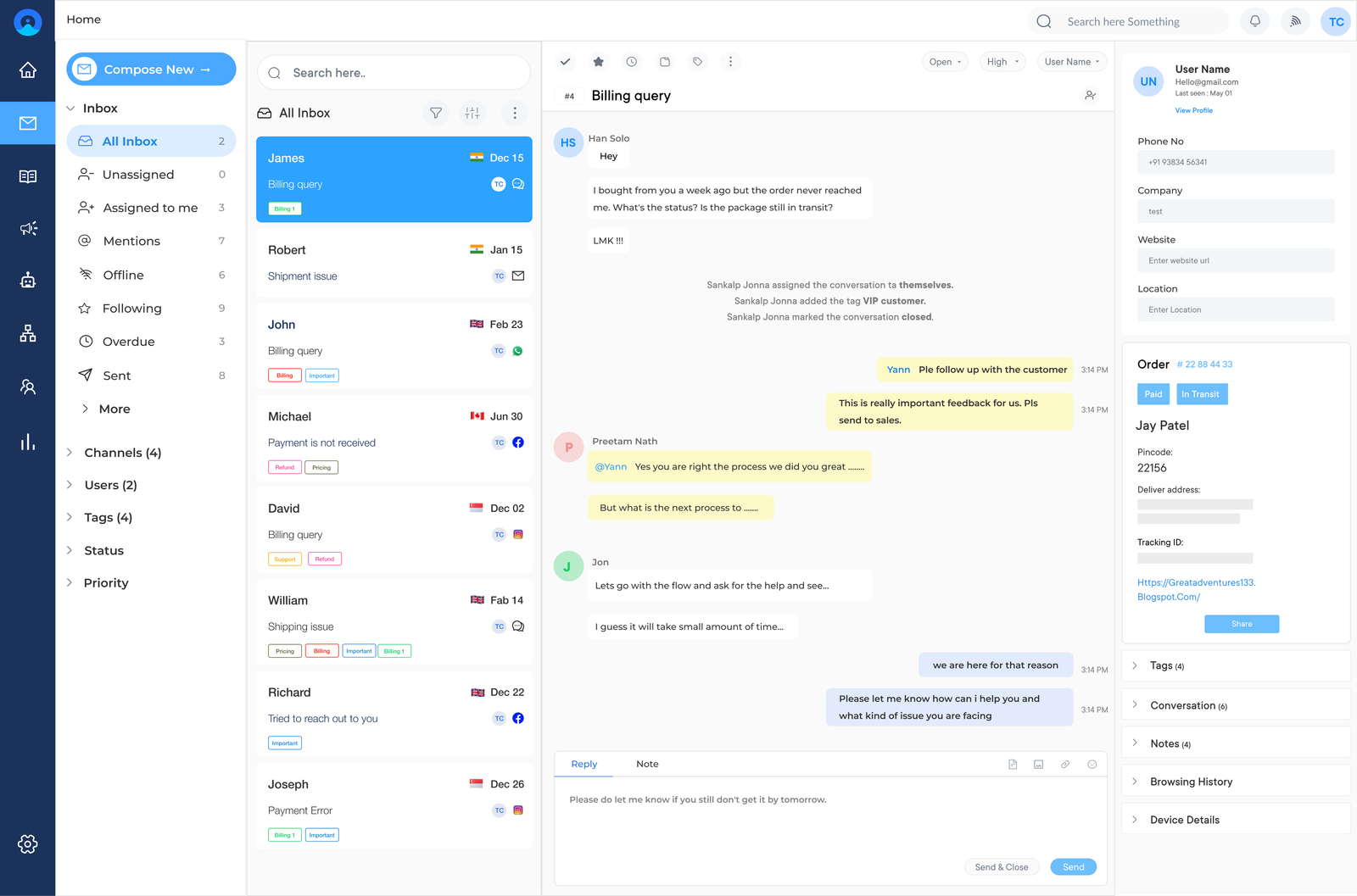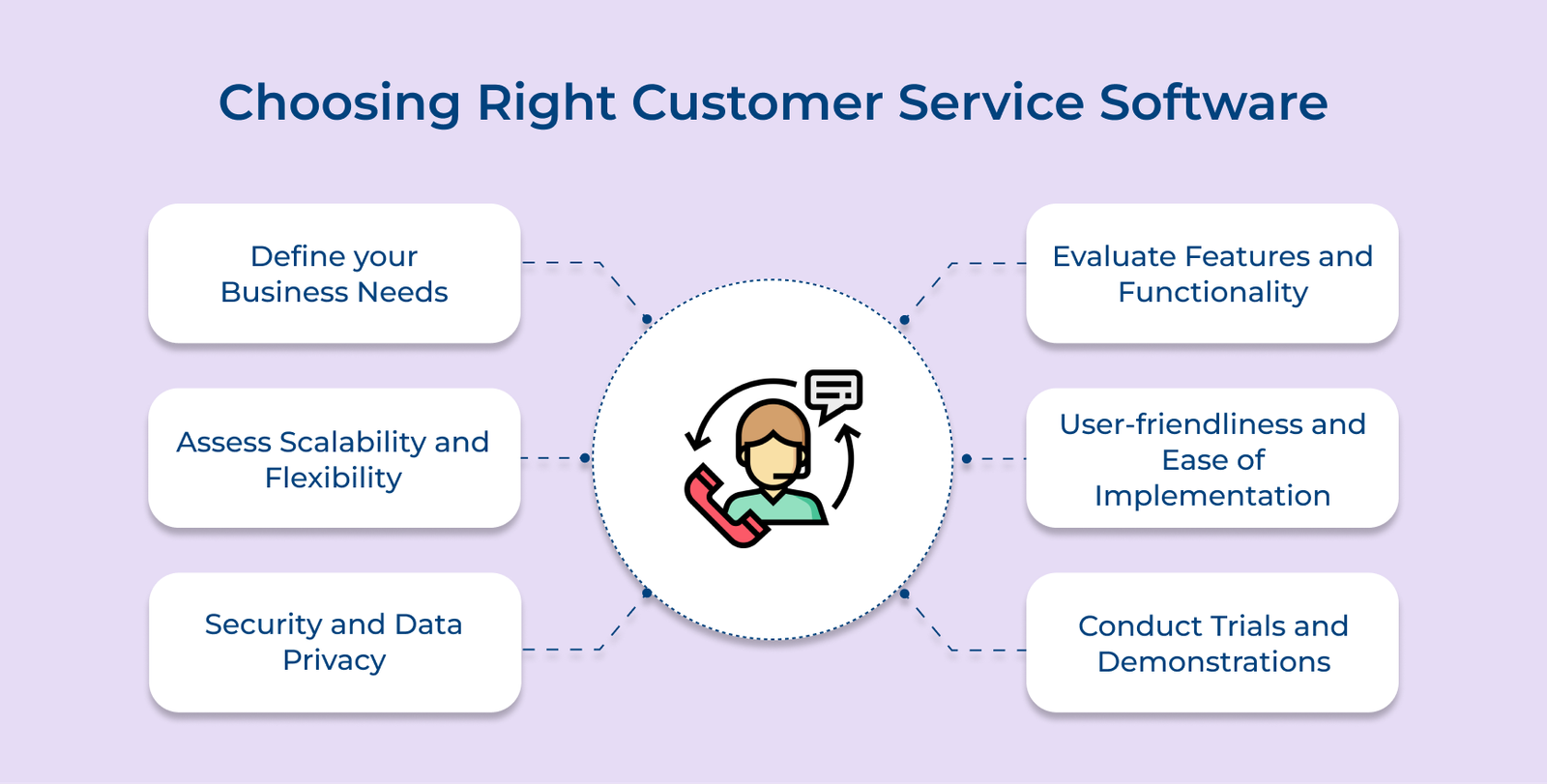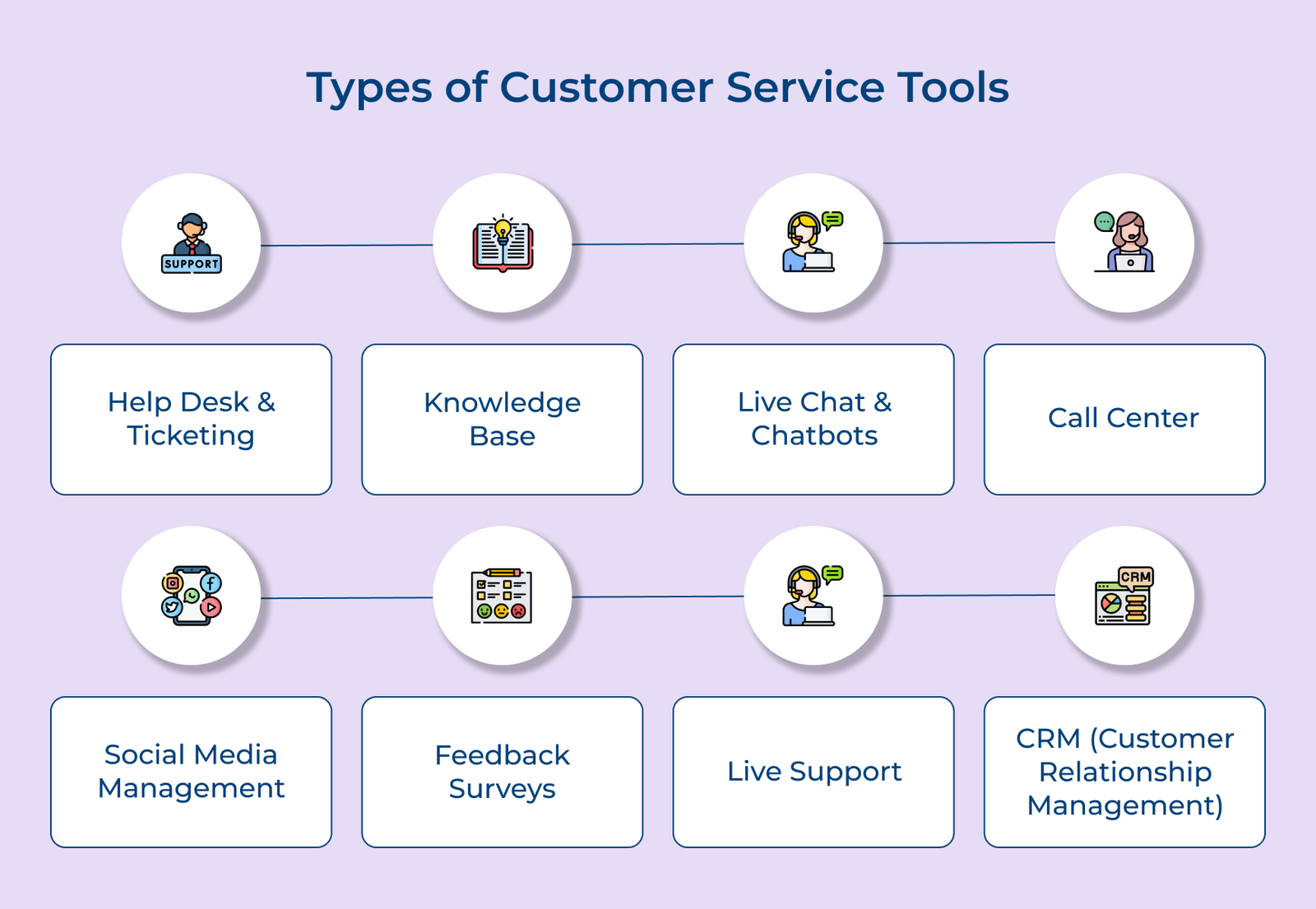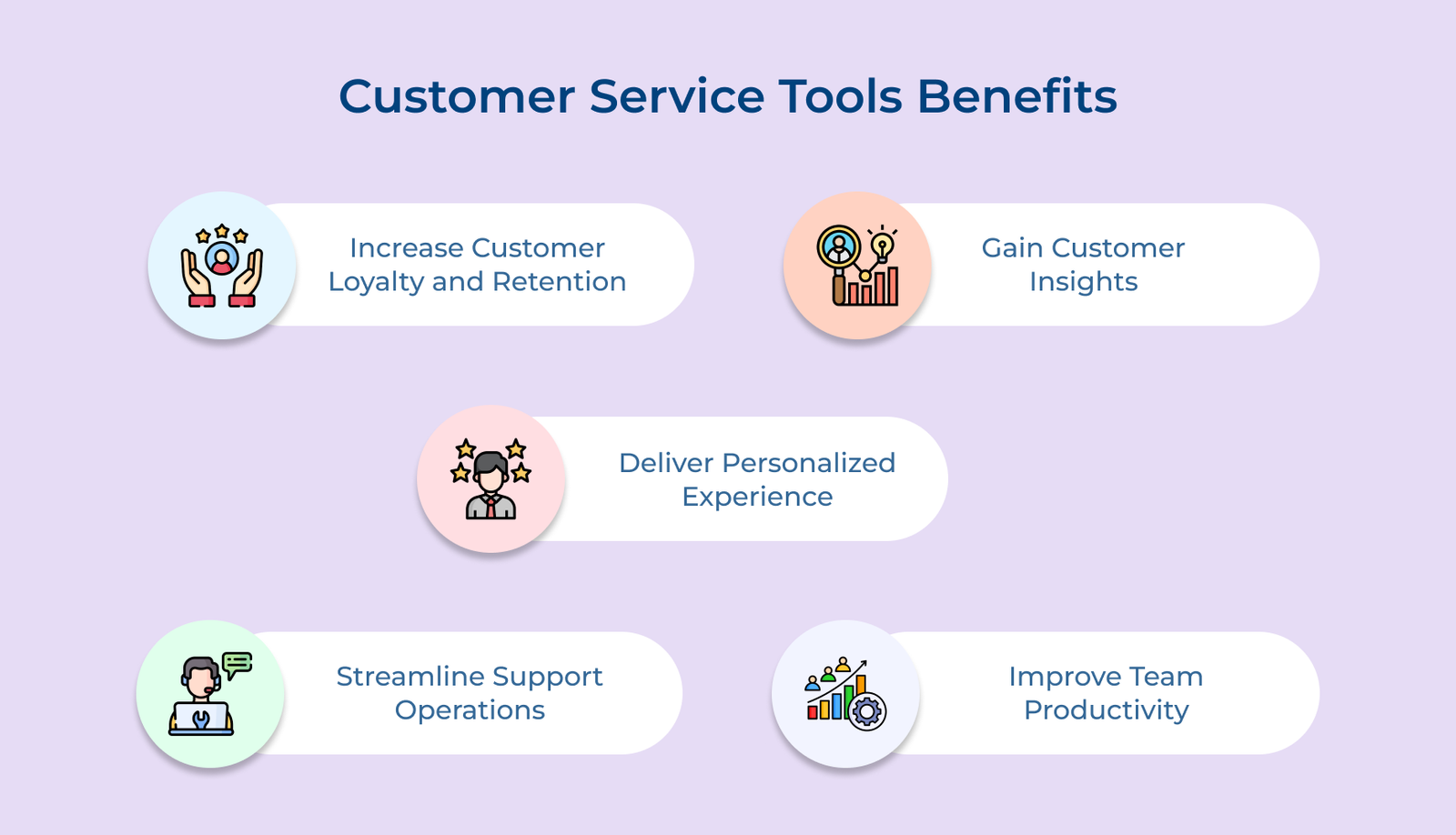1. Help Desk & Ticketing
The tools streamline the process of managing customer inquiries by creating a centralized platform for tracking, prioritizing and resolving issues. Help desk software enables customers to submit tickets, while agents can efficiently respond to them.
2. Knowledge Base
A well-crafted knowledge base empowers customers to find answers to common questions and solutions to problems on their own. The self-service portals not only enhance customer satisfaction but also alleviate the workload on customer support teams. It allows them to focus on more complex issues.
3. Live Chat & Chatbots
Real-time communication is the hallmark of exceptional customer service. Live chat tools facilitate instant connections between customers and support agents. Being powered by AI, chatbots take a step further by providing 24/7 assistance. The platform ensures the customers receive prompt and efficient support.
4. Call Center
While modern tools have evolved, the traditional call center remains a vital component of customer service. Advanced call center software enables features like automatic call distribution, call recording and integrated customer data. It empowers agents to deliver personalized and efficient support over the phone.
5. Social Media Management
Businesses must have a strong presence across all communication channels to remain competitive and relevant. Social media management tools help companies monitor customer conversations and engage with customers on time. The platform helps businesses enhance their brand loyalty and advocacy.
6. Feedback Surveys
Gathering customer feedback is important for identifying areas of improvement and understanding evolving needs. Feedback survey tools allow businesses to collect valuable insights from customers through various channels such as post-interaction surveys.
7. Live Support
While chat and email support are convenient, some customers prefer the personal touch of live support. Tools like screen sharing, remote desktop access and co-browsing enable support agents to provide real-time assistance. They guide customers through complex issues and enhance the support experience.
8. CRM (Customer Relationship Management)
CRM systems consolidate customer data, interactions and preferences into a centralized database. It empowers businesses with valuable insights to deliver personalized experiences and enhance long-lasting customer relationships.




